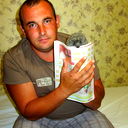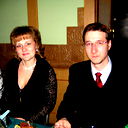Because of its geographical position, Italy has direct contacts with the main ethnic and cultural areas of old Europe (neo-Latin, Germanic, and Slav-Balkan areas) as well as, through North-African countries, with the world of Arab-Islamic civilisation. Consequently, while still anchored in the European and Western civilisation, Italy can be considered a natural link to those African and Asian countries which, bordering as they do on the same Mediterranean Sea, have shared historical events and cultural influences over many centuries.
Italian culture is deeply rooted in the ancient Greek and Roman civilisations which florished on the penisula for over a milllenium and left their imprint everywhere in the country in so many works of art, her legal system, her traditions.
After the decay of the Roman empire, through the Middle Ages and the Rennaissance up to the Modern Age, Italy developed her own civilisation, an interesting combination of traditions and innovations stimulated by the influence of the Christian faith. She became the cradle of visual arts, music, poetry, literature. At the same time, Italy promoted the development of the modern philosphical thought, of science and research and started establishing her universities the first of which ("Università degli Studi di Bologna" and "Università degli Studi di Napoli Federico II") are among the most ancient in the world.
Soon after the second world war (1950-1960), Italy made a tremendous effort to recover its moral energies and financial resources, rebuild its infrastructures, promote literacy as well as education at all levels, grant equal political and educational opportunities to all layers of society, foster scientific progress and technological innovation, establish fruitful relations of political, cultural and conomic cooperation with all countries within and outside Europe.
In more recent years, Italy has played an important role in European higher education: it is one of the four countries that first engaged to create the so-called "European Area of Higher Education" (Sorbonne Declaration, May 1998), thus starting that type of higher education reform which, known as "Bologna Process" (Bologna Declaration, June 1999) is being implemented all over Europe.
Today Italy ranks among the 8 most industrialised countries in the world. Alongside some big companies, both state-owned and private, she has developed a sound network of small and medium-sized undertakings, promoted a few scientific parks, and is incentivating basic and applied research in a great variety of fields (biology, ICT, medicine, physics, etc.).
или здесь вот проще) ) http://www.pocanticohills.org/italy/italy.htm
Прочее о городах и странах
людииии е нужны сведения ОБ Италии н английском языке!!!срочно
полезьте в Википедию, там есть
Italy (i /ˈɪtəli/; Italian: Italia [iˈtaːlja]), officially the Italian Republic (Italian: Repubblica italiana[note 1]), is a country located in south-central Europe. To the north it borders France, Switzerland, Austria and Slovenia along the Alps. To the south it consists of the entirety of the Italian Peninsula, Sicily, Sardinia – the two largest islands in the Mediterranean Sea – and many other smaller islands. The independent states of San Marino and the Vatican City are enclaves within Italy, whilst Campione d'Italia is an Italian exclave in Switzerland. The territory of Italy covers some 301,338 km2 (116,347 sq mi) and is influenced by a temperate seasonal climate. With 60.4 million inhabitants, it is the sixth most populous country in Europe, and the twenty-third most populous in the world.
Italy's capital, Rome, was for centuries the political centre of Western civilisation as the capital of the Roman Empire. After its decline, Italy would endure numerous invasions by foreign peoples, from Germanic tribes such as the Lombards and Ostrogoths, to the Byzantines and later, the Normans, among others. Centuries later, Italy would become the birthplace of the Renaissance,[7] an immensely fruitful intellectual movement that would prove to be integral in shaping the subsequent course of European thought.
Through much of its post-Roman history, Italy was fragmented into numerous kingdoms and city-states (such as the Kingdom of Sardinia, the Kingdom of the Two Sicilies and the Duchy of Milan), but was unified in 1861,[8] following a tumultuous period in history known as "Il Risorgimento" ("The Resurgence"). In the late 19th century, through World War I, and to World War II, Italy possessed a colonial empire, which extended its rule to Libya, Eritrea, Somalia, Ethiopia, Albania, Rhodes, the Dodecanese and a concession in Tianjin, China.[9]
Modern Italy is a democratic republic. It has been ranked the world's twenty-third most-developed country[10] and its Quality-of-Life Index has been ranked in the top ten in the world.[11] Italy enjoys a very high standard of living, and has a high nominal GDP per capita.[12][13] It is a founding member of what is now the European Union and part of the Eurozone. Italy is also a member of the G8, G20 and NATO. It has the world's seventh-largest nominal GDP, tenth highest GDP (PPP)[14] and the sixth highest government budget in the world.[15] It is also a member state of the Organisation for Economic Co-operation and Development, the World Trade Organization, the Council of Europe, the Western European Union and the United Nations. Italy has the world's ninth-largest defence budget and shares NATO's nuclear weapons.
Italy plays a prominent role in European and global military, cultural and diplomatic affairs. The country's European political, social and economic influence make it a major regional power, alongside the United Kingdom, France, Germany, and Russia.[16][17][18][19][20] The country has a high public education level, high labour force,[21] and is a highly globalised nation.[22]
Italy (i /ˈɪtəli/; Italian: Italia [iˈtaːlja]), officially the Italian Republic (Italian: Repubblica italiana[note 1]), is a country located in south-central Europe. To the north it borders France, Switzerland, Austria and Slovenia along the Alps. To the south it consists of the entirety of the Italian Peninsula, Sicily, Sardinia – the two largest islands in the Mediterranean Sea – and many other smaller islands. The independent states of San Marino and the Vatican City are enclaves within Italy, whilst Campione d'Italia is an Italian exclave in Switzerland. The territory of Italy covers some 301,338 km2 (116,347 sq mi) and is influenced by a temperate seasonal climate. With 60.4 million inhabitants, it is the sixth most populous country in Europe, and the twenty-third most populous in the world.
Italy's capital, Rome, was for centuries the political centre of Western civilisation as the capital of the Roman Empire. After its decline, Italy would endure numerous invasions by foreign peoples, from Germanic tribes such as the Lombards and Ostrogoths, to the Byzantines and later, the Normans, among others. Centuries later, Italy would become the birthplace of the Renaissance,[7] an immensely fruitful intellectual movement that would prove to be integral in shaping the subsequent course of European thought.
Through much of its post-Roman history, Italy was fragmented into numerous kingdoms and city-states (such as the Kingdom of Sardinia, the Kingdom of the Two Sicilies and the Duchy of Milan), but was unified in 1861,[8] following a tumultuous period in history known as "Il Risorgimento" ("The Resurgence"). In the late 19th century, through World War I, and to World War II, Italy possessed a colonial empire, which extended its rule to Libya, Eritrea, Somalia, Ethiopia, Albania, Rhodes, the Dodecanese and a concession in Tianjin, China.[9]
Modern Italy is a democratic republic. It has been ranked the world's twenty-third most-developed country[10] and its Quality-of-Life Index has been ranked in the top ten in the world.[11] Italy enjoys a very high standard of living, and has a high nominal GDP per capita.[12][13] It is a founding member of what is now the European Union and part of the Eurozone. Italy is also a member of the G8, G20 and NATO. It has the world's seventh-largest nominal GDP, tenth highest GDP (PPP)[14] and the sixth highest government budget in the world.[15] It is also a member state of the Organisation for Economic Co-operation and Development, the World Trade Organization, the Council of Europe, the Western European Union and the United Nations. Italy has the world's ninth-largest defence budget and shares NATO's nuclear weapons.
Italy plays a prominent role in European and global military, cultural and diplomatic affairs. The country's European political, social and economic influence make it a major regional power, alongside the United Kingdom, France, Germany, and Russia.[16][17][18][19][20] The country has a high public education level, high labour force,[21] and is a highly globalised nation.[22]
Похожие вопросы
- Пожалуйста помогите, срочно нужен доклад про виликобритани (на английском языке)!
- сведения о лондоне на английском языке
- Нужны тексты про Австралию на английском языке!
- во Францие- французскиий язык, в Италии-итальянский, в Англии-английский. Почему в америки, английский язык, а не америк
- нужен как бы доклад (презентация) на тему про шотландию. про их танцы, культуру и т. д. НА АНГЛИЙСКОМ ЯЗЫКЕ!!! ну можнго и н
- Можно ли переехать в Австралию без знания английского языка и работать где не нужен английский язык? (Например грузчиком)
- Почему все страны не сделают основным государственным языком - английский язык? Это же основной язык источника знаний
- Возможно ли жить во Франции с английским языком?
- помогите мне найти сочинение про Узбекистан на английском языке. сочинение про Узбекистан на английском языке
- Помогите пожалуйста!!! мне нужен краткий рассказ о Шотландии на английском языке!!!


